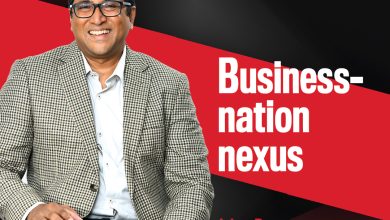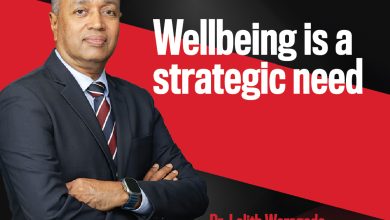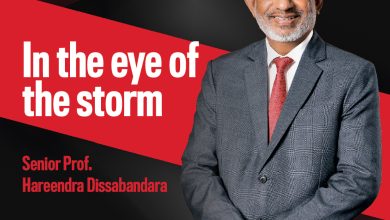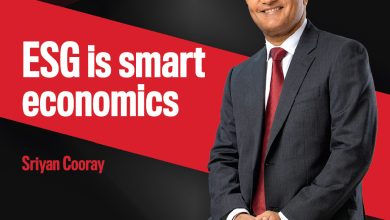Walking the talk
Sanath Manatunge
Financial success is but one criterion used to define the strength of a commercial organisation; it is a building block together with operational sustainability, goodwill within its community, and the respect and loyalty of its key stakeholders.
Reiterating these imperatives, and commenting on the importance of ‘corporate respect’ and what it takes to be a cut above the rest, Sanath Manatunge says: “Corporate respect is earned and enhanced through decades of dedication, demonstrated integrity and best practices, rigorous quality control and commitment of the culture of the entity to do the right thing – even when facing the risk of losing short-term financial gains.”
“Without respect earned from its key stakeholders, peers and the community at large, the financial success of a corporate will not be sustainable,” he adds.
To be above board is an extremely tall order for a corporate, he explains, especially when operating in the socioeconomic conditions of a developing economy: “This can only be achieved through consistent financial performance, a commitment to transparency, customer centric operations and in short, ‘walking the talk’ to build a strong corporate reputation.”
Manatunge believes that it helps to maintain strong control and governance frameworks, which are reviewed and revised at regular intervals in response to the dynamic external environment.
Contemplating the significance of honest dealings to an organisation, he posits: “It’s very important for the simple reason that it is fundamentally the right way to do things. If a corporate is cutting corners by compromising the honesty of its dealings, it faces the risk of exposure thus endangering its corporate reputation and loss of customer confidence – and even imperils its business operations.”
“Compromising the credibility of business dealings makes corporates vulnerable and obliged to third parties. Before they know it, the organisation could be entangled in a web of lies, deceit and unsavoury practices, bringing down the business and its reputation,” he adds.
Manatunge stresses the need to have a high level view of operations: “The control and evaluation mechanisms that you employed at the beginning of your business will not be adequate as you continue to grow.”
“Financial success also brings with it many risks alongside numerous changes in the external environment. It is advisable to work together with professionals and peers, to establish prudent practices to ensure a feasible and sustainable governance framework,” he explains.
In a cutthroat environment, being honest and transparent takes hard work, courage and boldness. Challenging socioeconomic conditions that engender a ruthless competitive business environment would certainly influence and impact people conducting business.
He avers: “The only way corporates could deal with this is to ensure that internal teams are made aware of the organisation’s ethos of corporate accountability and best practices, the key attributes of which would be clearly defined boundaries, transparent communications, multilevel controls, and constant pre and post evaluations.”
Manatunge elaborates: “It is crucial that your team knows what is expected of them and how to meet such expectations effectively. In addition, the team should be encouraged to report and notify any unethical incidents; there should be confidential and effective ways of reporting such incidents with strong support available to people pre and post reporting.”
“Any reported incidents have to be heard and managed in a fair and transparent manner with appropriate corrective action taken,” he stresses, adding: “This will ensure that your organisational culture is robust in terms of corporate accountability.”
Summing up, he says: “The biggest benefit is the trust, respect and loyalty earned from key stakeholders, which in turn translates into long-term financial success and resilience. Such companies will inspire their peers, employees and the entire business ecosystem to do the right thing.”






